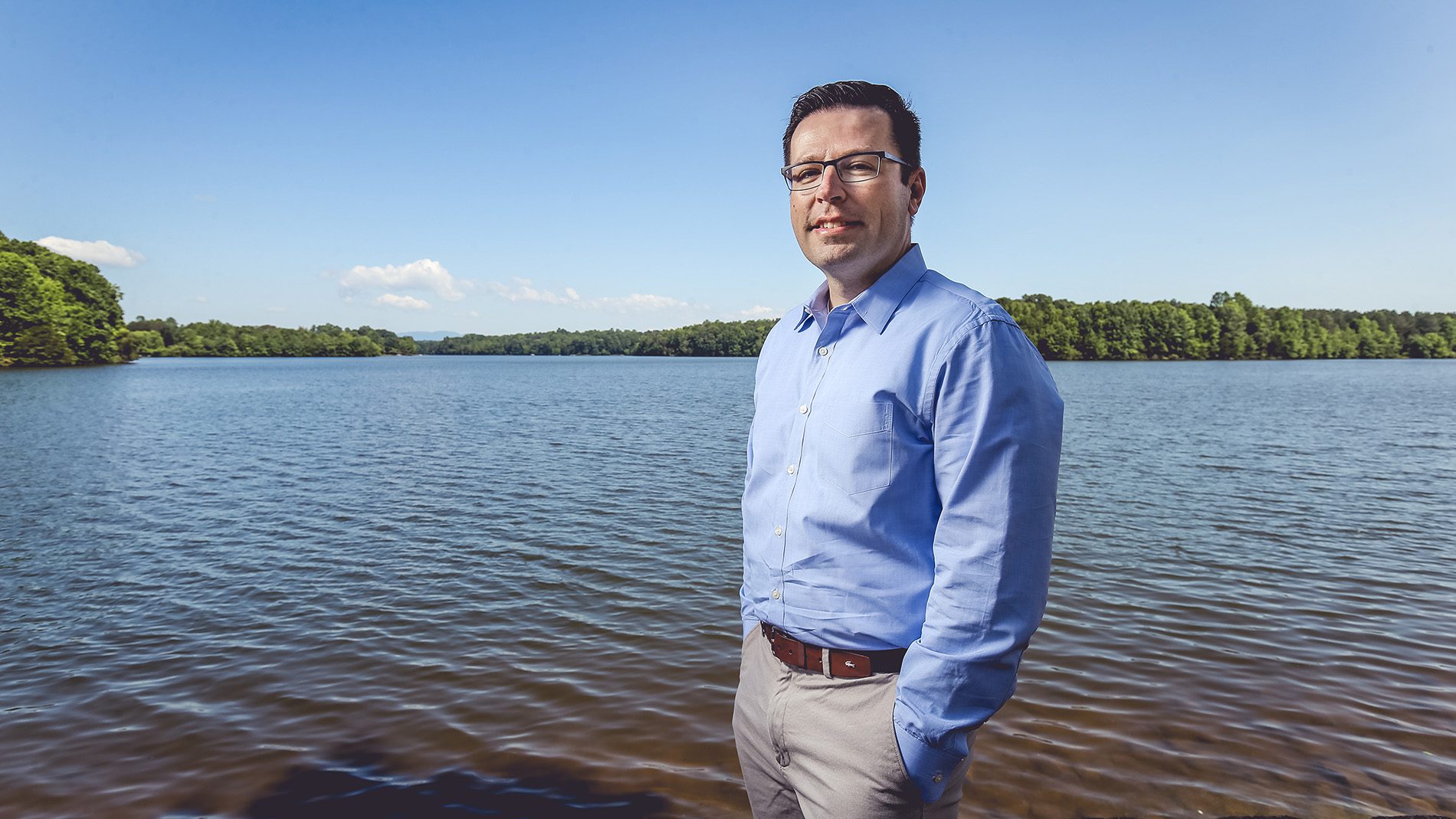The business and technology of water

Though he had been part of the dot com craze’s heyday, and though he had been a technology consultant, Jeff Diaz ’06 was still looking for something more. He wanted the intellectual challenge and professional credibility that a college degree could give him. He knew his broad curiosity and diverse interests were a good fit for a liberal arts institution. He also knew he wanted a college experience, complete with a campus, camaraderie with other students, and professors who cared. By his own admission though, his transcript left something to be desired. A decade earlier, he had enrolled in college but spent more time in computer labs than in the classroom. Soon after, he left to dive into “the Wild West of dot com”—an exhilarating time, when anything seemed possible. He spent the rest of his 20s programming and consulting in that environment. But at age 29, he was ready and the time was right to move forward. He chose Furman.
He remembers the experience of being in class in Undergraduate Evening Studies with professors who were invested in the lives and successes of their students. He says that the rigors of his undergraduate work made earning his MBA at Clemson, and MIS coursework at Texas A&M, much easier. He believes that for those who have aspirations beyond the bachelor’s degree, Furman provides great preparation. His studies opened up opportunities that led to his current position as chief information officer at SJWD Water District in Spartanburg, SC.
Jeff observes that Furman UES is positioned well with its new Information Technology major and Data Analytics Certificate. Rather than focusing narrowly on coding, hardware/software infrastructure, and certifications, the larger area of concern addressed by a Furman IT education is how one might use information technology strategically to improve one’s department and company. According to Diaz, if information technologists are to rise above a commodified role—one that, with cloud computing and “code farms” is increasingly becoming marginalized from the decision-making and control functions—they must be educated to anticipate the evolution of the IT professional away from certification silos, and toward the task of finding value in the deluge of data. Business intelligence, decision support, and critical analysis are the functions IT professionals will serve in the future, and gaining these skills will determine one’s ability to climb within an industry.
These functions are exactly what Diaz now performs on a day-to-day basis. When he began his work at SJWD, IT was viewed as a way to reduce headcount through automation. Over time, he has seen the focus shift significantly toward how IT can add value. He looks at steps in the water treatment process that he never in the past anticipated could be analyzed, combing through the data to find new relationships and new links between processes that increase operational efficiency. He uses what he finds to make a business case for improvements, as he can now quantify what were once just hunches. As a small utility, SJWD must get the most out of its tax millage and be good stewards of the basic need for water, so this stewardship drives his data-driven approach to improvement.
He cites two major areas of challenge in his job—business intelligence and security. As the Flint, MI, crisis sadly reminds us, it is imperative that the community’s water supply be safe. But in a world of cloud computing and mobile devices, it is not only the integrity of the water system itself which must be safeguarded, but consumer data as well. He constantly evaluates the philosophical ramifications of what functional areas may be outsourced. And Jeff does this in an environment of anticipated growth—while SJWD now produces a daily average of approximately 8 million gallons to 22,000 customers, he anticipates that when the Toray plant is operational, the steam and other processes used in carbon fiber production will demand an additional 2-6 million gallons per day.
Diaz is expanding his career yet again, as he returns this fall in UES as an instructor in Project Management. He is eager to share some of his knowledge, and give back to the institution that laid the educational foundation upon which he has constructed a challenging and meaningful career.
Learn more about Furman Undergraduate Evening Studies.